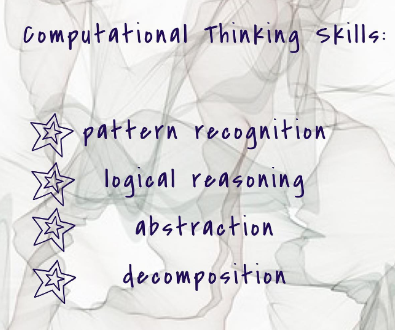This Month in STEM—Computational Thinking & The Webb Telescope
Aug 08, 2022
The James Webb Telescope
On December 25, 2021, the James Webb Telescope was launched into space from Europe’s Spaceport in French Guiana. This $10 billion telescope is the result of the combined efforts of NASA, the European Space Agency, and the Canadian Space Agency to explore space in ways we could not previously. On July 11, 2022, the telescope revealed the deepest and sharpest infrared image of the galaxy cluster SMACS 0723. This groundbreaking achievement will help scientists work to understand the history of the universe, dating back to the Big Bang.
Other Findings
The telescope’s images presented other revolutionary findings, as well. These include images of WASP-96b, a hot planet outside of our solar system, on which water, haze, and clouds were detected. A second dying star within the Southern Ring Nebula was also detected. Images of Stephan’s Quintet, a group of galaxies located within the constellation Pegasus, are helping scientists understand how different galaxies prompt star formations within each other. Finally, images of the Carina Nebula are giving a more extensive look into how stars are formed, including a deeper study of the gas and dust that creates them.
Thomas Zurbuchen, the associate administrator for the Science Mission Directorate of NASA, noted, “It took decades of drive and perseverance to get us here…”
So, how does this connect to programming?
This reminds us that the technical and problem-solving skills we practice in STEM are constantly at work in our world. Arriving at this revolutionary telescope design required consistent effort and work by a team of engineers, scientists, computer programmers, mathematicians, and many others. These images are the result of decades of hard work. Similarly, it takes time and practice to become proficient in a computer programming language. This type of persistence is necessary when learning to code and in many other endeavors.
What if you don’t want to be a programmer?
Being able to work at a goal persistently, despite unsuccessful attempts, is a key skill that people use in any field. Even if you don’t want to code as part of your future job, computational thinking skills that are developed through learning to code can be applied to any job you can imagine! Educators and parents, we can even apply these concepts across various curricula for our students' benefit.

These are skills we strive to help you with at the Excalibur Solutions STEM Academy. Check out our Content Library to get started with some skill-building projects! Pay special attention to our “Into the Kuiper Belt” project. One day, you might just find yourself working for NASA!
Stay connected with news and updates!
Join our mailing list to receive the latest news and updates from our team.
Don't worry, your information will not be shared.
We hate SPAM. We will never sell your information, for any reason.

